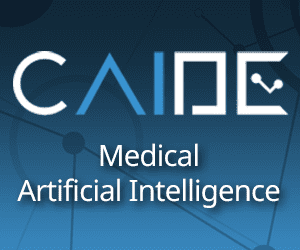Smart Cities Redefined: AI-Driven Urban Planning, Infrastructure Optimization, and Citizen Services” explores the transformative role of artificial intelligence (AI) in reshaping urban environments, optimizing infrastructure, and enhancing citizen services in smart cities. Here’s an overview of the key themes covered in this exploration:
Urban Planning and Design:
- Data-Driven Decision Making: Utilizing AI-powered analytics and predictive modeling to analyze urban data, including demographic trends, transportation patterns, and environmental factors, to inform urban planning decisions, optimize resource allocation, and improve the livability of cities.
- Simulation and Visualization: Employing AI-driven simulation tools and digital twins to create virtual replicas of urban environments, enabling planners, architects, and policymakers to visualize and simulate the impact of proposed infrastructure projects, zoning regulations, and land use policies.
- Community Engagement: Facilitating participatory urban planning processes through AI-powered citizen engagement platforms, crowdsourcing initiatives, and interactive feedback mechanisms that enable residents to contribute ideas, provide feedback, and co-design the future of their cities.
Infrastructure Optimization:
- Smart Transportation: Implementing AI-based traffic management systems, dynamic routing algorithms, and predictive maintenance solutions to optimize traffic flow, reduce congestion, and improve safety on roads, highways, and public transit networks in smart cities.
- Energy Management: Deploying AI-driven energy management systems, smart grids, and demand-response algorithms to optimize energy consumption, reduce peak loads, and integrate renewable energy sources into urban energy networks, enhancing sustainability and resilience.
- Waste Management: Utilizing AI-powered sensors, IoT devices, and predictive analytics to optimize waste collection routes, schedule maintenance activities, and identify areas for recycling and composting initiatives, improving efficiency and reducing environmental impact.
Citizen Services:
- Digital Government Services: Offering AI-driven digital government platforms, chatbots, and virtual assistants that enable citizens to access public services, report issues, and receive information on city policies, programs, and events through personalized and interactive channels.
- Smart Healthcare: Implementing AI-based healthcare systems, telemedicine platforms, and remote monitoring solutions that provide citizens with access to personalized healthcare services, preventive care programs, and real-time health information from anywhere in the city.
- Public Safety: Deploying AI-powered public safety and security systems, including video analytics, predictive policing, and emergency response solutions, to enhance situational awareness, crime prevention, and disaster management capabilities in smart cities.
Inclusive and Equitable Development:
- Digital Inclusion: Promoting digital literacy programs, affordable internet access, and public Wi-Fi initiatives to bridge the digital divide and ensure that all citizens have equitable access to digital services, online education, and employment opportunities in smart cities.
- Accessibility: Incorporating universal design principles and accessibility features into urban infrastructure, public spaces, and digital interfaces to accommodate persons with disabilities and ensure that smart city services are inclusive and accessible to all residents.
- Community Empowerment: Empowering local communities, grassroots organizations, and neighborhood associations with AI-driven tools, data analytics, and decision support systems that enable them to participate in urban governance, advocate for their needs, and co-create solutions to local challenges.
Data Governance and Privacy:
- Ethical AI: Establishing ethical guidelines, data governance frameworks, and privacy regulations to ensure responsible use of AI technologies, protect citizen privacy, and mitigate risks of algorithmic bias, discrimination, and surveillance in smart city deployments.
- Transparency and Accountability: Promoting transparency and accountability in AI-driven decision-making processes by providing citizens with visibility into data collection practices, algorithmic models, and policy decisions that affect their lives and communities.
- Data Security: Strengthening data security measures, encryption protocols, and cybersecurity defenses to safeguard smart city data, infrastructure, and critical systems from cyber threats, data breaches, and unauthorized access.
Conclusion:
“Smart Cities Redefined: AI-Driven Urban Planning, Infrastructure Optimization, and Citizen Services” underscores the transformative potential of AI in shaping the future of cities, enabling more efficient, sustainable, and inclusive urban environments. By harnessing AI technologies to optimize infrastructure, enhance citizen services, and promote equitable development, smart cities can unlock new opportunities for economic growth, social innovation, and quality of life improvements for all residents, paving the way for a more resilient and responsive urban future.








